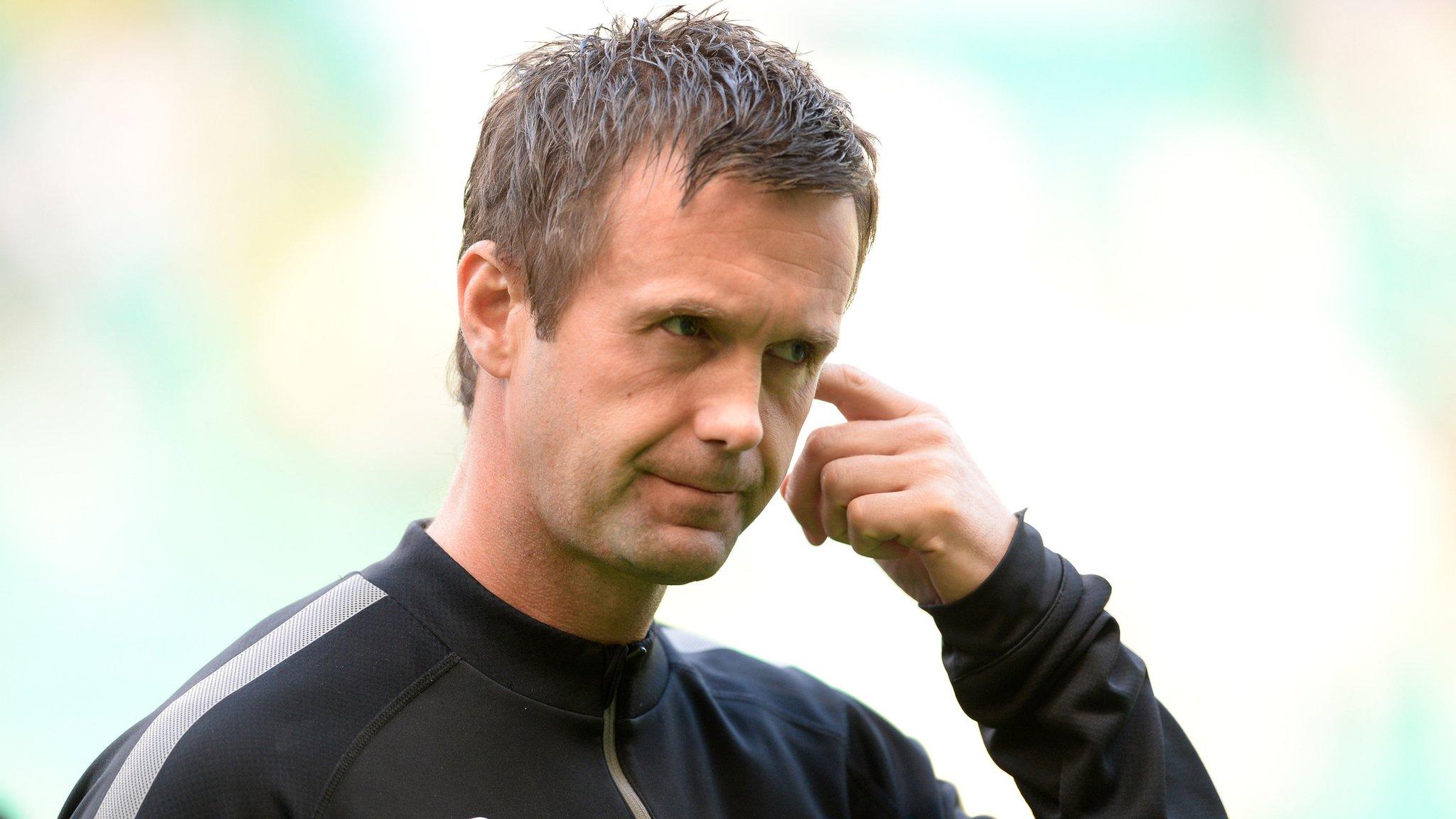Celtic challenged by on and off-field circumstances
- Published
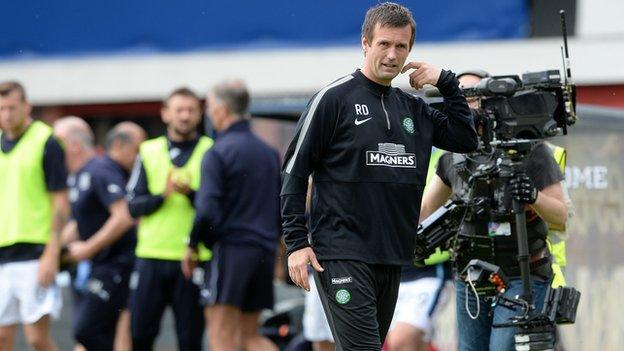
Celtic manager Ronny Deila
The opening weeks of the season have left Celtic looking careworn around the edges.
A period of transition was inevitable as Ronny Deila adapted to the greater variety and intensity of challenges associated with managing a club the size and stature of the Scottish champions, compared with his previous employers Stromsgodset.
He might, though, have felt that European football and the transfer window were in alliance against him.
A troublesome time has brought grievances to the surface.
Following Champions League defeats to Legia Warsaw and Maribor, and a difficult experience in the transfer market, some Celtic supporters have railed against the strategy of the club's board, a discontent that has been manifested in criticism of the chief executive Peter Lawwell.
Unrest will tend to follow a series of poor results, though, and anxiety increases when there is a new manager who has yet to convince that patience and faith will be rewarded.
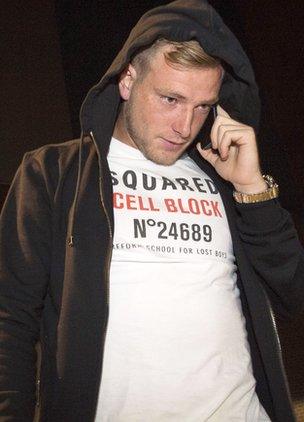
John Guidetti hopes to join Celtic from Manchester City
Even so, the sense is of some fans being frustrated at the fundamental principles of the club's approach.
Lawwell delivered a persuasive and robust defence last Friday.
But then the team dropped two more points at Dens Park two days later, Stefan Scepovic pulled out of a move from Sporting Gijon before performing another U-turn to join Celtic, John Guidetti hoped to join the club on loan from Manchester City, and Virgil van Dijk was posted missing against Dundee after being informed that he would not be allowed to move during the transfer window.
There ought to be no cause for significant alarm, nonetheless. The Scepovic deal involved a complex mix of individuals - and some within Celtic are growing exasperated by the number of parties that increasingly become involved in transfer negotiations - and the motivations of a player who was toying with two clubs since he appeared on the verge of signing for Getafe.
Commitment is a concern with Van Dijk. The defender might have wanted to move following Celtic's failure to reach the Champions League group stages, but he contributed to that turn of events.
There was no financial imperative for the club to sell and even if the defender was persuaded to come to Scotland with a view to earning a move to England, and some profit for Celtic, both sides of the bargain will understand that any move has to be mutually beneficial.
Celtic did not want to sell another leading player, after Fraser Forster saw his desire to return to England fulfilled with a move to Southampton.
Deila has defended Van Dijk - who has been called up by the Dutch national squad - talking about the pressures of speculation, but valid questions about his attitude could trouble potential buyers.
To secure the transfer he ultimately wants, he needs to perform impressively for Celtic, which means that a period of peevish behaviour is self-defeating.
Dramas with players will always flare up. Deila has a reputation in Norway for being good at dealing with challenging individuals while still motivating consistent performances from them.
The signing of Scepvoic will at least, presumably, provide him with the type of forward he wants for a system that sees three creative players line up behind a single striker.
The loan signings of Jason Denayer,Aleksander Tonev and Wakaso Mubarak provide options in defence and attack, so Deila ought to be able to impose the style and structure of play that he wants.
The coming weeks will shape how the fans view him. The demand will be for Celtic to regain their domestic authority, and while Deila's focus on development and maximising players' ability fits perfectly into the club's model, it will be secondary in the short-term to results.
In truth, though, it is not Celtic's strategy that has been at fault, but its implementation.
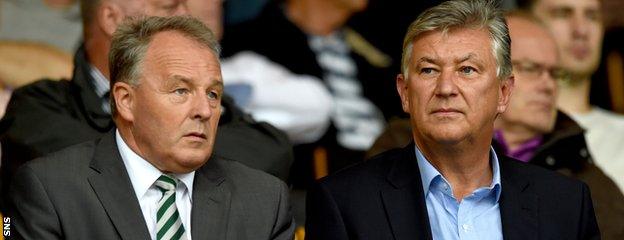
The focus is on John Park, the football development manager, and chief executive Peter Lawwell to ensure that Celtic's recruitment strategy is more successful than last summer
Investment has been made on players, although since Gordon Strachan became manager in May 2005 the club is around £7million in profit in transfer dealings.
It is the quality of the players that the champions signed last summer that has been an issue, since only van Dijk has contributed consistently and impressively to the team, while Amido Balde, Steven Mouyokolo, Derk Boerrigter, Nir Biton and Teemu Pukki have all been peripheral.
As Lawwell identified, money from player sales has been used to bridge the drop in revenues caused by the absence of Rangers from the top flight.
Clubs such as Celtic, that are historically well-supported and financed but that operate in leagues outwith the elite, are hampered by the financial realities of their surroundings. Celtic are working to the right fundamental principles, but no strategy is infallible.
Downsizing has occurred, since the current team is no match for the side that Lennon steered out of the Champions League group stages in 2012/13, but the club is putting its faith in Deila to be the kind of manager who works in sync with the buy, develop and sell strategy.
Celtic's challenge isolates them in Scotland, since they aim to be competitive domestically and in the Champions League. Even so, Scottish football could feel belittled when the top tier in England saw more than £800m spent in the transfer window.
The reasons are well-known - principally TV revenue - but the Scottish game can make a virtue of its circumstances by developing talent and then exporting it.
Several clubs have adopted that approach anyway, although some through necessity. Scottish football will benefit, domestically and internationally, by a widespread and committed focus on youth development.
Celtic can afford to be more varied in the way they build their team, but there is no need for a radical overhauling of their methods, just better results.
- Published2 September 2014
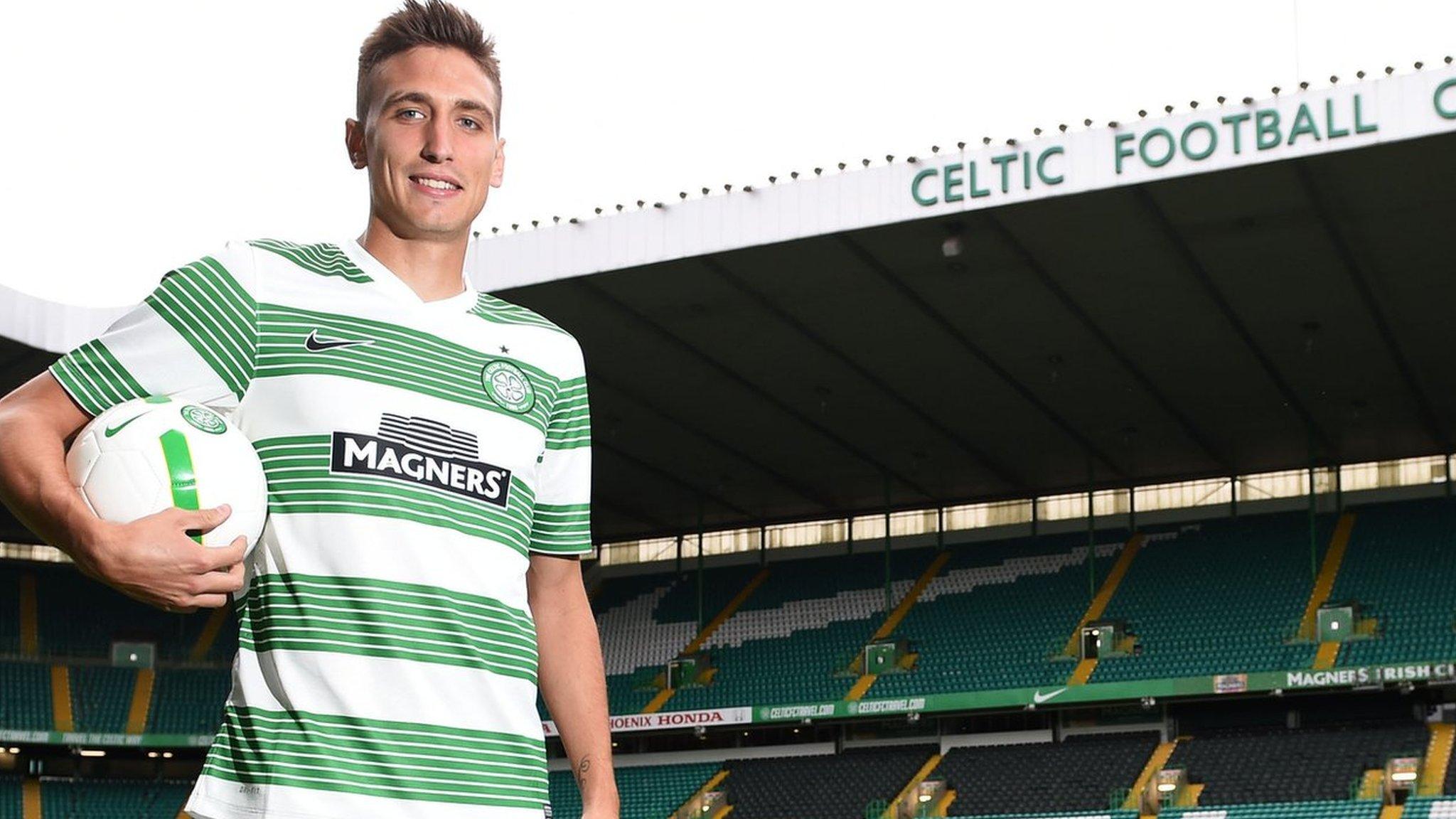
- Published1 September 2014
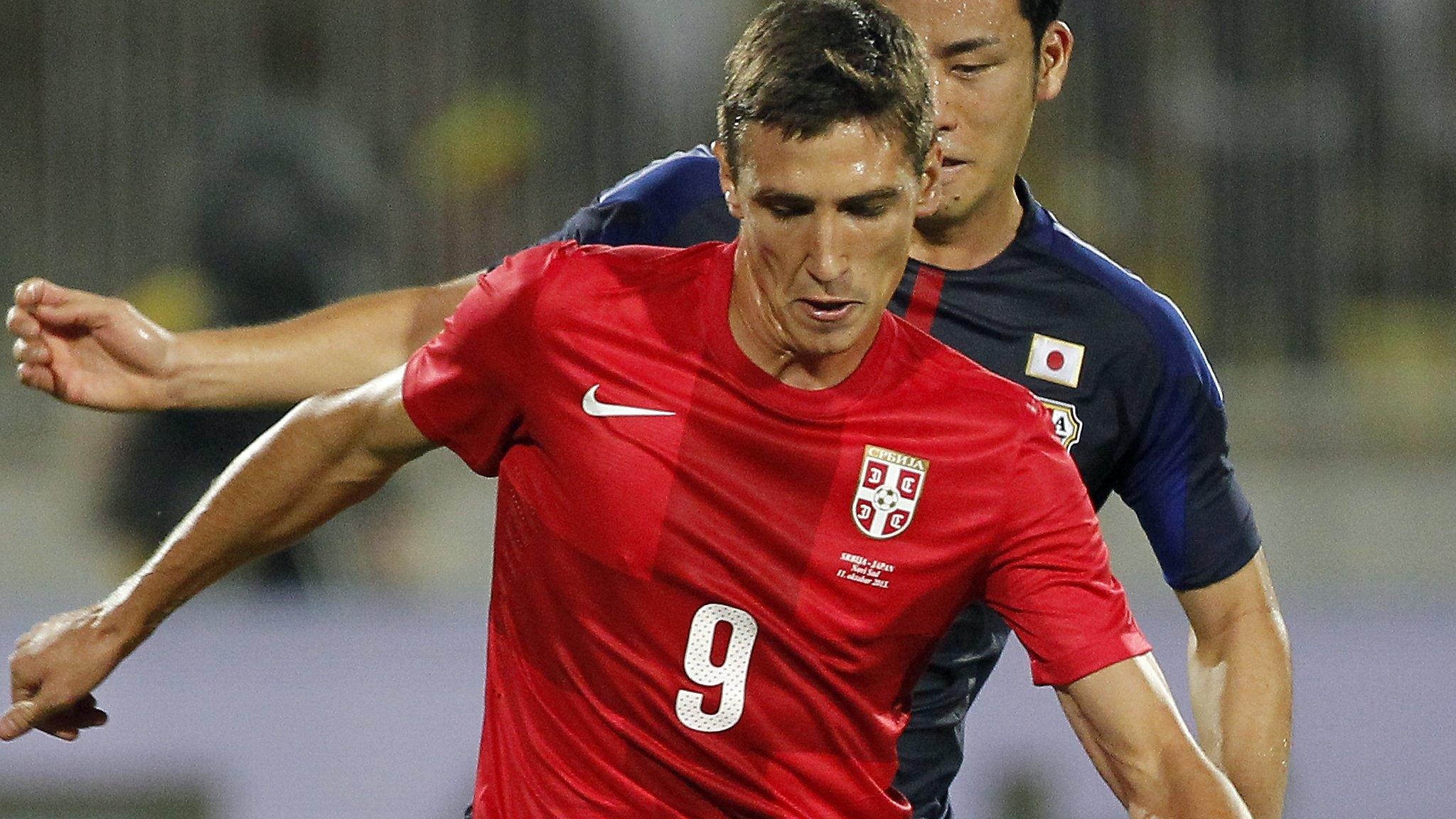
- Published31 August 2014
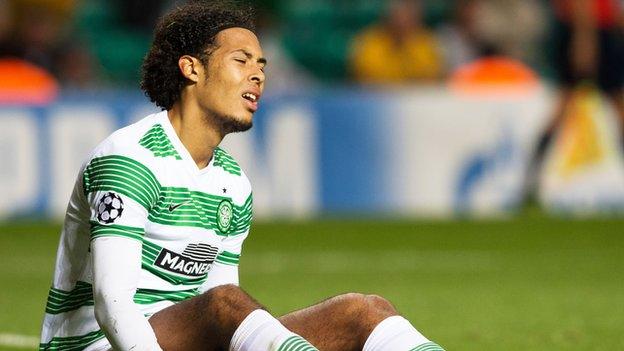
- Published29 August 2014
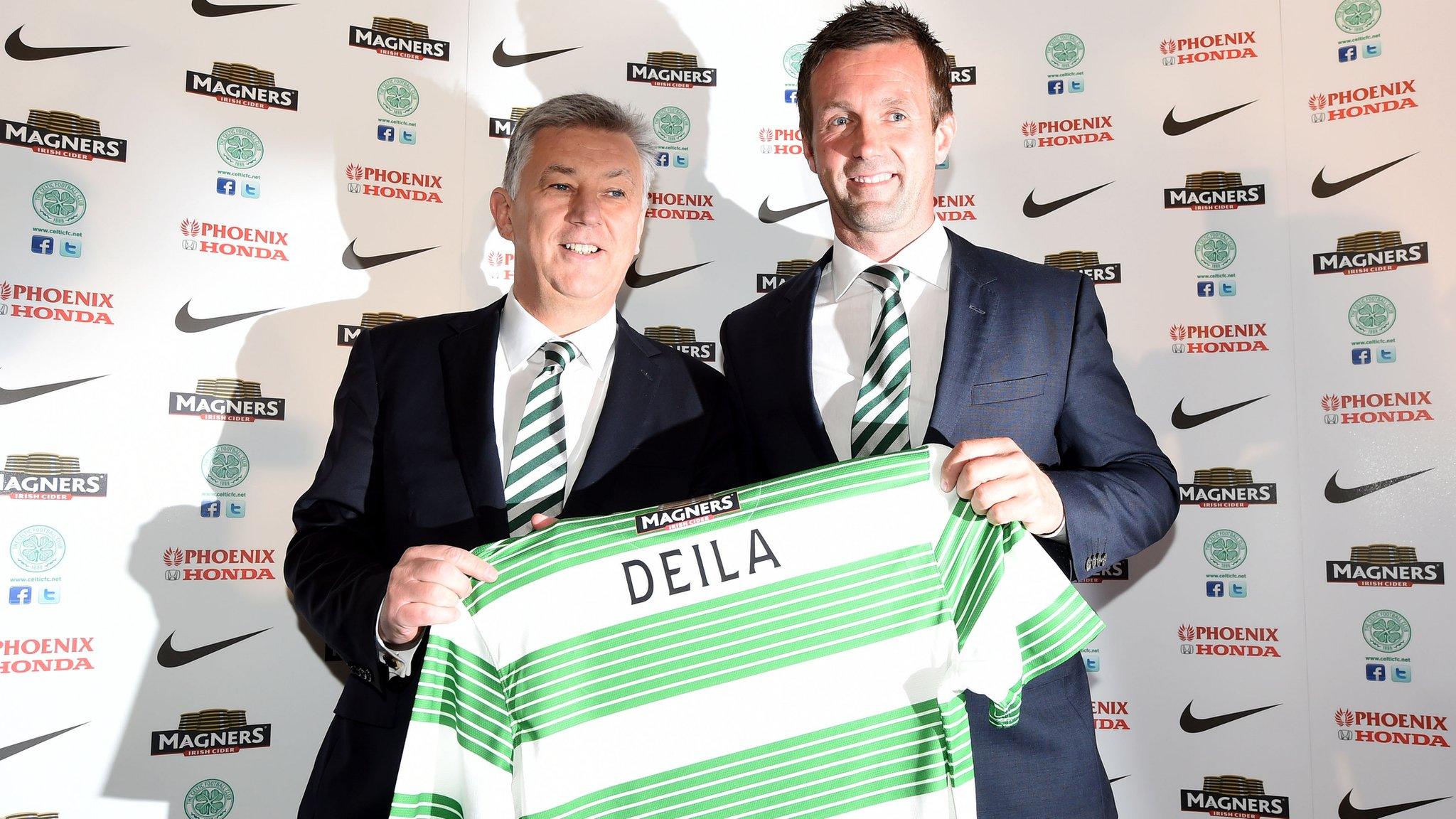
- Published29 August 2014
